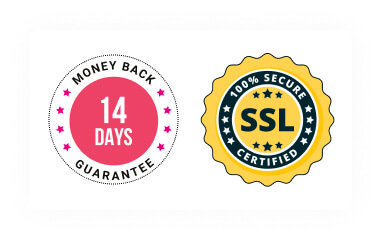Course Curriculum
| Induction Form | |||
| Induction Form | 00:05:00 | ||
| Registration Entry Form | |||
| Registration Entry Form | 00:05:00 | ||
| Group A (21 credits) | |||
| Unit 01 Communication in a business environment | |||
| Support Materials | |||
| 1. The Requirements of Written and Verbal Business communication | 00:00:00 | ||
| 2. The Communication Requirements of Different Audiences | 00:00:00 | ||
| 3. The Importance of Using Correct Grammar, Sentence Structure, Punctuation, Spelling and Conventions in Business Communications | 00:00:00 | ||
| 4. Importance of Using Appropriate Body Language and Tone of Voice When Communicating Verbally | 00:00:00 | ||
| 5. The Nature, Purpose, Audience and Use of the Information to be Communicated | 00:00:00 | ||
| 6. Use Communication Channels that are Appropriate to the Information to be Communicated and the Audience | 00:00:00 | ||
| 7. Present Information in the Format that Meets the Brief | 00:00:00 | ||
| 8. Adhere to Agreed Business Communication Conventions and Degree of Formality of Expression When Producing Documents | 00:00:00 | ||
| 9. Produce Business Communications that are Clear, Accurate and Correct | 00:00:00 | ||
| 10. Meet Agreed Deadlines in Communicating with Others | 00:00:00 | ||
| 11. The Nature, Purpose, Recipient(s) and Intended Use of the Information to be Communicated | 00:00:00 | ||
| 12. Use Language that is Appropriate for the Recipient’s Needs | 00:00:00 | ||
| 13. Use Body Language and Tone of Voice to Reinforce Messages | 00:00:00 | ||
| 14. The Meaning and Implications of Information that is Communicated Verbally | 00:00:00 | ||
| 15. Confirm that a Recipient has Understood Correctly what has been Communicated | 00:00:00 | ||
| Unit 02 Understand employer organisations | |||
| Support Materials | |||
| 1. Differences Between the Private Sector, Public Sector and Voluntary Sector | 00:00:00 | ||
| 2. Functions of Different Organisational Structures | 00:00:00 | ||
| 3. Features of Different Types of Legal Structures for Organisations | 00:00:00 | ||
| 4. Internal and External Influences on Organisations | 00:00:00 | ||
| 5. Analysing Organisational Environment | 00:00:00 | ||
| 6. Organisational Change | 00:00:00 | ||
| Unit 03 Principles of providing administrative services | |||
| Support Materials | |||
| 1. Different Types of Meetings | 00:00:00 | ||
| 2. Providing Administrative Support for Meetings | 00:00:00 | ||
| 3. Steps Involved in Organising a Meeting | 00:00:00 | ||
| 4. Different Types of Business Travel and Accommodation | 00:00:00 | ||
| 6. Features of Hard Copy and Electronic Diary Systems | 00:00:00 | ||
| 7. Managing a Diary System | 00:00:00 | ||
| 8. Importance of Obtaining Correct Information When Making Diary Entries | 00:00:00 | ||
| 9. Different Types of Office Equipment and Their Uses | 00:00:00 | ||
| 10. Using Office Equipments Effectively | 00:00:00 | ||
| 11. Types of Mail Services Used in Business Organisations | 00:00:00 | ||
| 12. Customer Service in a Business Environment | 00:00:00 | ||
| Unit 04 Principles of business document production and information management | |||
| Support Materials | |||
| 1. Formats and Types of Business Documents | 00:00:00 | ||
| 2. The Use of Different Types of Information Communication Technology (ICT) for Document Production | 00:00:00 | ||
| 3. The Reasons for Agreeing the Use, Content, Layout, Quality Standards and Deadlines for Document Production | 00:00:00 | ||
| 4.The Importance of Document Version Control and Authorisation | 00:00:00 | ||
| 5. The Requirements of Security, Data Protection, Copyright and Intellectual Property Legislation may Affect the Production of Business Documents | 00:00:00 | ||
| 6. Check the Accuracy of Business Documents | 00:00:00 | ||
| 7. The Requirements of Security, Data Protection, Copyright and Intellectual Property Legislation may Affect the Distribution and Storage of Business Documents | 00:00:00 | ||
| 8. Different Types of Distribution Channels | 00:00:00 | ||
| 9. The Types of Information Found in Business Organisations | 00:00:00 | ||
| 10. The Need for Safe Storage and Efficient Retrieval of Information | 00:00:00 | ||
| 11. The Features of Different Types of Systems Used for Storage and Retrieval of Information | 00:00:00 | ||
| 12. The Legal Requirements for Storing Business Information | 00:00:00 | ||
| Unit 05 Manage personal performance and development | |||
| 1. Performance Management Process | 00:00:00 | ||
| 2.Improving Productivity through More Effective Time Management | 00:00:00 | ||
| 3.Work-Life-Balance | 00:00:00 | ||
| 4.Training and Development Policy | 00:00:00 | ||
| 5. Learning Styles | 00:00:00 | ||
| 6. Performance Requirements of Your Own Work Role | 00:00:00 | ||
| 7. Feedback Mechanism for Identifying Own Development Needs | 00:00:00 | ||
| 8. PDP | 00:00:00 | ||
| 9. Workplace Learning | 00:00:00 | ||
| 10.Reviewing Progress and Sharing Lessons | 00:00:00 | ||
| Unit 06 Develop working relationships with colleagues | |||
| Support Materials | |||
| 1. The Benefits of Effective Team Working | 00:00:00 | ||
| 2. Constructive Feedback | 00:00:00 | ||
| 3. Conflict Management Techniques that may be Used to Resolve Team Conflicts | 00:00:00 | ||
| 4. Importance of Giving Team Members the Opportunity to Discuss Work Progress and Any Issues Arising | 00:00:00 | ||
| 5. The Importance of Warning Colleagues of Problems and Changes that May Affect them | 00:00:00 | ||
| 6. Recognise the Contribution of Colleagues to the Achievement of Team Objectives | 00:00:00 | ||
| 7. Treat Colleagues with Respect, Fairness and Courtesy | 00:00:00 | ||
| 8. Fulfil Agreements Made with Colleagues | 00:00:00 | ||
| 9. Constructive or Positive Feedback | 00:00:00 | ||
| 10. Take Others’ Viewpoints into Account when Making Decisions | 00:00:00 | ||
| 11. Take Ownership of Problems within Own Level of Authority | 00:00:00 | ||
| 12. Take Action to Minimise Disruption to Business Activities within their Own Level of Authority | 00:00:00 | ||
| 13. Resolve Problems within their Own Level of Authority and Agreed Contribution | 00:00:00 | ||
| Group B (14 credits) | |||
| Unit 09 Organise business travel or accommodation (4 credits) | |||
| Unit 15 Contribute to the organisation of an event (3 credits) | |||
| Unit 25 Produce minutes of meetings (3 credits) | |||
| Unit 27 Health and safety in a business environment (2 credits) | |||
| Unit 28 Use a telephone and voicemail system (2 Credits) | |||
| Group C (3) | |||
| Unit 35 Use and maintain office equipment ( 2 Credits) | |||
| Unit 36 Using email (3 credits) | |||
| Group D (4) | |||
| Unit 51 Principles of marketing theory (4 credits) | |||
| Unit 52 Principles of digital marketing (5 Credits) | |||
| Unit 56 Exploring social media (2 Credits) | |||
| Assignment Submission Guideline | |||
| Assignment Submission Guideline | 00:00:00 | ||
| Submit Your Assignments – NCFE Level 2 Diploma in Business Administration | |||
| Submit Your Assignments – NCFE Level 2 Diploma in Business Administration | 00:00:00 | ||
| Resubmit Your Assignments – NCFE Level 2 Diploma in Business Administration | |||
| Resubmit Your Assignments – NCFE Level 2 Diploma in Business Administration | 00:00:00 | ||
| End of Course Questionnaire | |||
| End of Course Questionnaire | 00:00:00 | ||

0
0
Your Cart
Your cart is emptyBrowse Courses
Upgrade to get UNLIMITED ACCESS to ALL COURSES for only £49/year
Claim Offer & UpgradeMembership renews after 12 months. You can cancel anytime from your account.
Other Students Also Buy













 1 Year Access
1 Year Access 
 3 Students
3 Students  229 Hours
229 Hours 



